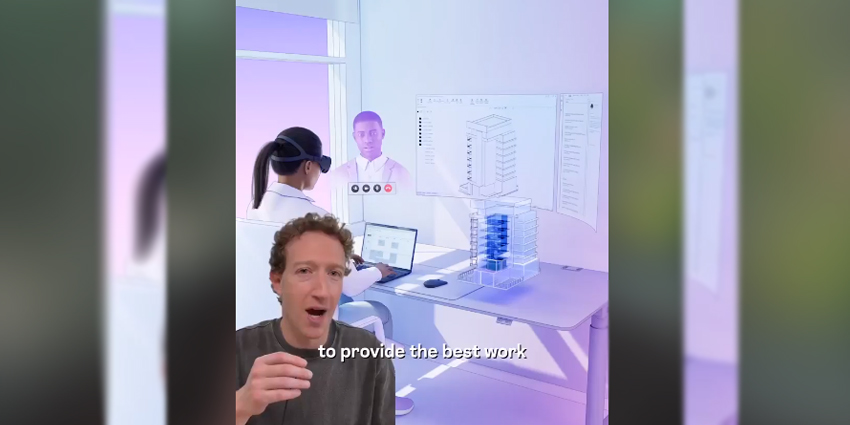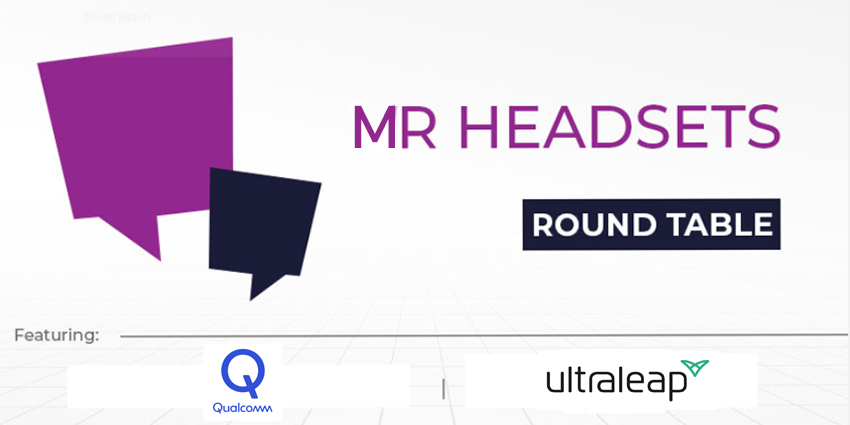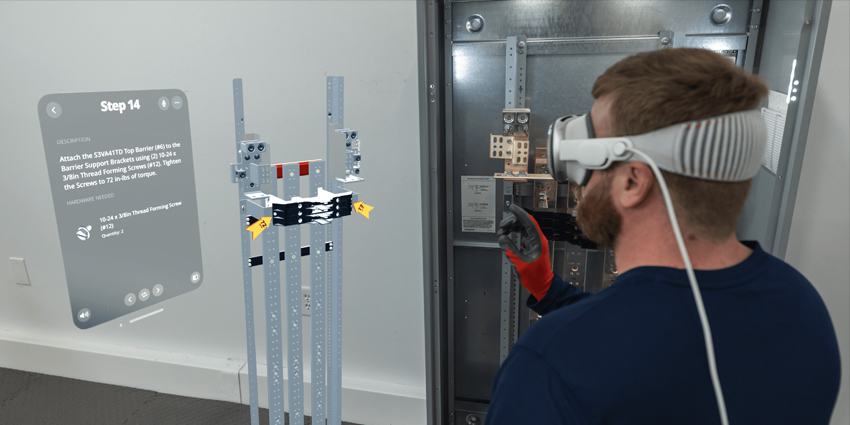This month could just prove that immersive business solutions will start seeing greater media hype in the next few months leading into 2024, CES, and beyond.
As 2024 continues to build up as perhaps another foundational year for XR, November is seeing major organisations unveil the last major updates of the year.
However, with 2024 shaping up to be a monumental year for XR, with Microsoft, NVIDIA, Amazon, and Apple all putting major stakes and investments into the space, what companies do today could greatly influence the future of work.
While immersive technology will take many years to become ubiquitous in any shape, the current innovations and R&D pushed by major technology firms could shape years to come, depending on a vast range of factors.
Microsoft Ignite 2023: An Industrial Metaverse Showcase
Ignite 2023 took place online this week via an official digital portal, and at its Seattle location, Microsoft invited the general computing industry to participate and see the firm’s innovative workplace solutions from Copilot, Hololens, Teams, Mesh to Dynamics 365 Guides.
At Ignite, Microsoft announced plans to introduce new avatars and immersive spaces to its popular Teams application, widely used for workplace communications.
In January 2024, the avatars and spaces will be made available for general use through Mesh, a suite of no-code tools and integrated Unity features that will allow enterprise customers to create bespoke immersive spaces, such as employee events, training, tours, and product showcases.
Microsoft will provide additional details on the Mesh for enterprise service as the January 2024 general availability release approaches. Speaker enhancements, attendee engagement options and interaction are among the additional features that will be introduced next year.
In addition, Microsoft has announced updates to its Dynamics 365 platform, which utilizes AI, MR, IoT, and other cutting-edge technologies to provide users with new workplace opportunities, benefiting companies already that operate Microsoft Teams in their AR workflows and those that use Microsoft’s HoloLens 2 MR headset – as well as new players to the immersive tech space.
Microsoft is designing its Dynamics toolset to help businesses leverage AR and MR devices for industrial applications – just as Microsoft builds up its industrial Metaverse roadmap.
Microsoft noted at Ignite that frontline workers can access information such as work orders by communicating with Copilot through Microsoft Teams.
The firm is rolling out the features starting in early December this year for free. The service’s customers can also now access Dynamics 365 Guides and Dynamics 365 Remote Assistance to enable real-time collaboration through remote experts who can assist users through mobile devices or Microsoft HoloLens 2 headsets.
Microsoft believes that by leveraging these solutions, businesses can expand their field service operations while undergoing digital transformation and meeting the increasing demand for immersive solutions in the workplace.
Snap, Amazon Expand In-App AR eCommerce Opportunities.
On Tuesday, Amazon announced its partnership with Snap to conduct a trial for online shopping through the latter’s messaging app, following a recent agreement between the firms to leverage AR try-on services for smart glasses.
Snap, which has a daily user base of 363 million, will continue integrating these services, enabling its users to shop directly from Amazon on its social media platform with AR integration.
The firm saw little success with its AR hardware ambitions. However, by partnering with Amazon, who are themselves researching spatial computing, Snap can become a serious eCommerce solutions provider.
Ben Schwerin, Senior Vice President for Partnerships Snap, said:
With the combined innovation and technology between Snap and Amazon, we are unlocking exciting and fun new try-on experiences for hundreds of millions of Snapchatters. AR eyewear is just the first step in our partnership
Meta Quest for Business Launches
Meta Quest for Business is now available; following a series of reveals last month, Meta is debuting the service as a partial revamp following the firm offering a VR headset subscription service for enterprises closer to the Occulus era.
The Menlo Park-based firm is officially launching its enterprise-grade XR device management and distribution hub to support enterprise end-users in leveraging Meta Quest 2, 3, and Pro devices. Moreover, Meta Quest for Business helps clients distribute devices and applications across a team.
Meta Quest for Business is now available for enterprise end-users in supported regions like the United States and the United Kingdom. Meta also offers Shared Mode and Support Plus as add-ons for the service.
One of the most noteworthy aspects of the Meta Quest for Business service is that it does not require a Meta account for workers to participate, which has been a concern for some in the past. Because with the Shared Mode feature purchase, workers can join without needing a Meta account.
Is a New Valve XR Headset in Development?
This week, Valve Designer Lawrence Yang gave details about a new XR headset when talking about the firm’s latest mobile gaming device: Steam Deck OLED.
The comments noted how Valve acknowledges the overlap of mobile computing technology between the Steam Deck OLED and an XR headset, suggesting simultaneous development or research.
Yang explained:
Obviously, there’s a lot of overlap from technology pieces that we can use; wireless streaming is very applicable to VR. That benefitted Steam Deck as well in improving the wireless experience. But also from just establishing relationships with part suppliers, hardware partners, and that kind of stuff. The SteamVR team and the Steam Deck team work together. There’s a lot of inoculation of ideas, parts and technologies.
Moreover, Yang says that many hardware decisions inform Valve in designing its next XR headset, such as the miniaturisation of computing, “just like Steam Deck is learning a bunch of stuff from controllers and VR, future products will continue to learn from everything we’ve done with Steam Deck,” Yang stated.
Yang also noted that Valve doesn’t “have anything to announce today in terms of a VR other than we are still working on VR, and we’re still pushing forward on it.”






